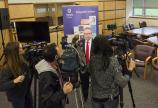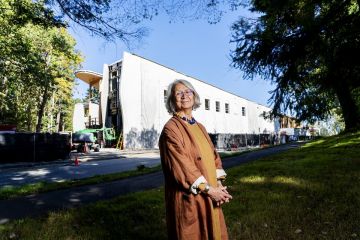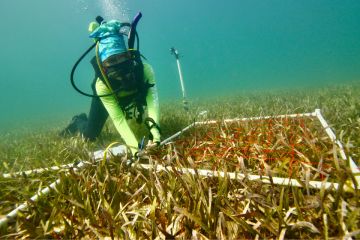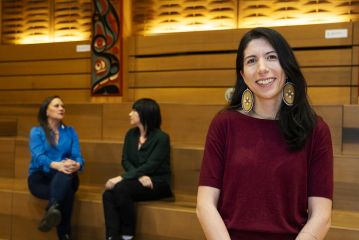Expert Q&A on Pride 2019 and 50 years of gender rights in Canada
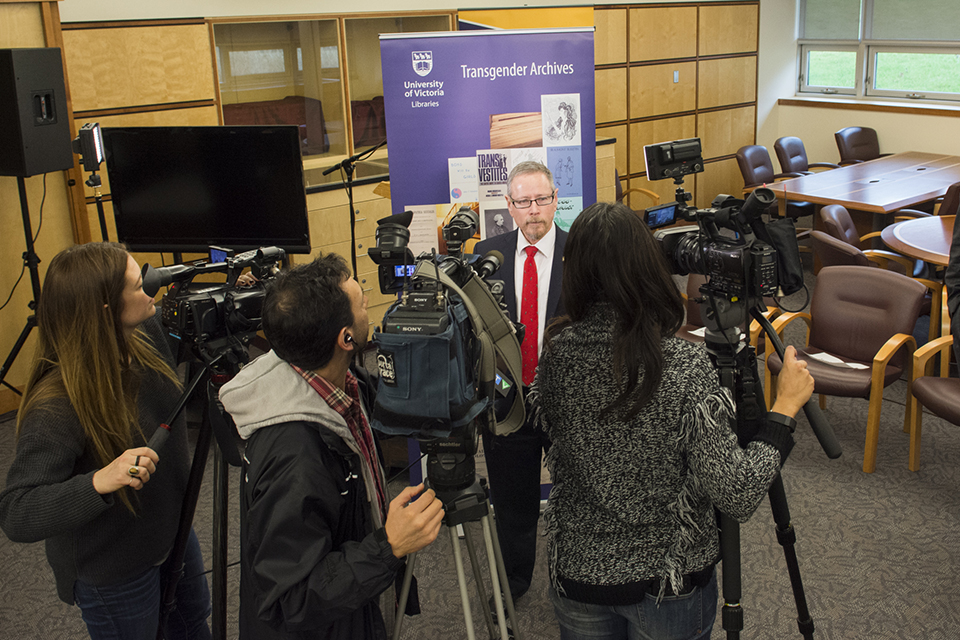
As Canada prepares to mark the 50th anniversary of the decriminalization of homosexuality and people prepare for Pride 2019 festivals in cities across the continent to honour the 50th anniversary of the Stonewall uprising, Aaron Devor of the University of Victoria says Canada has led societal change but there is still more work to be done to support LGBTQ2S+ communities.
Devor—the world’s first Chair in Transgender Studies at UVic (announced in January 2016), and founder and academic director of UVic’s Transgender Archives, which is the largest in the world—is a globally recognized leader in transgender research and a public commentator on trans issues and rights.
You’ve said many on the front lines of the 1969 Stonewall Riots were trans people, that they took the brunt of discrimination and that, although the world is safer now for trans, non-binary and Two-Spirit people, there is so much more that needs doing to make the world truly just for gender-variant people. So what has changed since the late ‘60s?
When the Stonewall Riots started, many trans people who were there were already living very much on the margins of society and had a lot of anger about their circumstances. So they felt that they had little to lose by fighting back. A huge amount has changed since then in some regards while in others, very little has changed.
In Canada, there has been legislative change just in the last few years, giving rights to TNB2S+ people that did not exist before. We have seen a lot of progress in public attitudes and public tolerance and acceptance for TNB2S+ people. But whenever we see social change it is uneven, there are always people who react against it and try and turn back the clock.
While some people are doing a lot better, that doesn't mean that everybody's lives are better. We see laws that are progressive and moving in the right direction. But there are many, many instances of people who are doing just as badly now as they ever did before.
There's a huge experience of sexual assault and still a high degree of homelessness, much higher than the general population.
So, although in Canada things have moved a lot, quite strongly in the right direction, there is still tons of work to do.
Pride Toronto is the biggest Pride festival in Canada. As the world’s first Chair in Transgender Studies, what would you say is the role that Canada plays globally in making a difference in the lives of some of the most vulnerable people in society?
It’s great that Toronto pride is so big and it's something that all of us should be proud of, and at the same time trans people haven't always felt that they have been properly included there, or in many of the other pride festivals. There's more that can be done there.
The real crux of the question is about Canada being a global leader. We do have some of the most progressive and some of the really best policies and laws anywhere in the world for transgender people. And we are known around the world as a hospitable place for TNB2S+ people to live by comparison to other nations.
I'm proud of what Canada has done. There's lots of work left to be done, but when you compare it to other countries around the world, there are few countries that have done as well as Canada.
Can you speak to how the Trans Archives at UVic supports students in their research, as well as in the work you do to increase knowledge about the lives and circumstances of TNB2S+ people?
The transgender archive is a unique resource. It holds the largest collection anywhere in the world, by a significant margin, of original documentary materials that record the history of transgender research, transgender activism and transgender people more generally. And very little of that history has been written. Students, faculty and community members who are interested in knowing their history and in writing some of that history can visit the archives. We also have artists who come to our archives to get inspiration for artistic work that looks to the history of TNB2S+ people.
The Chair in Transgender Studies also supports undergrad, master’s and doctoral students at UVic through two types of unique scholarships and fellowships. One for students who themselves identify as TNB2S+ and are doing any kind of research at all. And then we have another category which is for people who are doing some kind of work in the area of transgender studies. There are also fellowships for people not from UVic—often graduate students from another university or people from the community.
I do a lot of public speaking to educate people about the circumstances of TNB2S+ people. Sometimes it's just a general lecture of the variety of Trans 101, basic information for people who want to get up to speed, and sometimes it’s more specialized. I also speak to the media quite a bit about trans issues.
There is still some controversy within the LGBTQ2S+ community about the 50-year anniversary of decriminalization, despite important gains. What might be the reasons that activists and historians say there is still much work to be done?
There is a lot of work left to be done because TNB2S+ people still live overwhelmingly in poverty, still have employment difficulties. Not so much in Canada, but in other parts of the world, it may be completely illegal to be TNB2S+. Even in Canada, with all of our good laws, it's still difficult to get identity documents changed, it’s still difficult to get medical treatment; harassment and discrimination are very common. Most TNB2S+ people are very worried about interactions with the police; crossing borders is difficult, and basic things like housing, education and health care are for many, many trans people very difficult, if not impossible, to obtain. So we see mental health issues, we see addiction issues, we see high suicide and attempted suicide rates. These are the ramifications of widespread stigma and discrimination.
The laws and many policies are good in Canada and continue to improve. And I am hopeful for the future.
But we've had 50 years to work on this. We could have come a lot further in 50 years than we have, and there is still a great deal of work left to be done.
Photos
Media contacts
Dr. Aaron Devor (Chair in Transgender Archives, Sociology) at 250-721-7577 or ahdevor@uvic.ca
Anne MacLaurin (Social Sciences Communications) at 250-217-4259 or sosccomm@uvic.ca
Tara Sharpe (University Communications + Marketing) at tksharpe@uvic.ca
In this story
Keywords: gender, Pride Week, inclusivity, human rights, sociology
People: Aaron Devor

